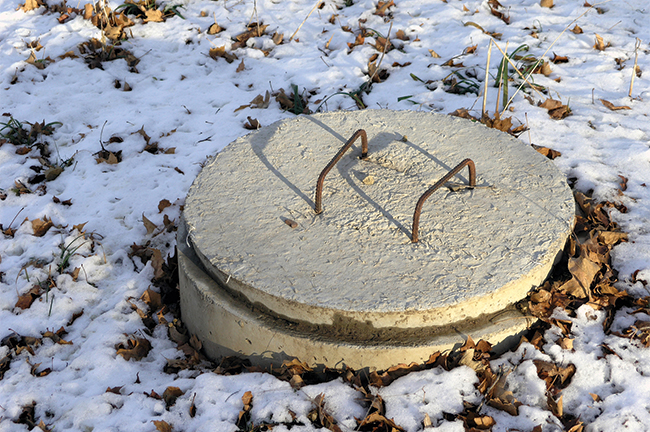
Nobody wants a frozen septic system. Use these tips to prevent yours from freezing. Like water pipes, your septic system can freeze. Here are some tips to avoid the damage cold weather can cause.
- Use it. Without hot water going through the septic system, it’s susceptible to freezing. That can damage the tank, piping, the filter and its housing, and can cause waste to back up into the house. That will be costly and undesirable.
- Snow cover is good insulation over your septic system. Don’t shovel it off.
- If you don’t have adequate snow cover before the temperature drops below freezing, insulate the system using straw bales or purpose-made insulating blankets.
- Stop mowing the grass over the system a few weeks before the end of the growing season. Extra vegetation provides another layer of insulation.
- Don’t leave a trickle of water running, as people do to prevent pipes from freezing. That cold drip of water could cause an ice clog in your septic system.
- If you won’t be using the home in the winter, keeping it heated at 56 F to 58 F is one option for freeze prevention.
- If you’re rarely there during the winter, or if you drain your water and winterize your home, have the tank pumped out before freezing temperatures set in.
- Bury the tank as deeply as possible to help protect from freezing. The maximum depth for a concrete tank is eight feet to the top of the tank. Plastic tanks can’t be buried as deeply as concrete; only a maximum of 24 inches. Burying a tank deep, however, can make maintenance more difficult since it’s hard to see into the corners where sludge can build up.
After installation, septic tanks “settle” for up to a year. The area over the tank and drain field should be “crowned” to minimize the effect of settling. This is important, as water pooling around the tank freezes.
If you do have to add more fill as a result of settling, don’t use pea gravel around manhole covers. That doesn’t redirect the flow away from your system’s parts — it allows water to flow toward the tank. The ground can freeze and lift the manhole covers. Then groundwater flows into the tank, shortening the life of the system.
Contact Morse Engineering and Construction for more information.
Source: familyhandyman.com
